- Call: 01751924362, 01824020667
- Email: [email protected]
About Grass Pavers
Grass pavers, also known as grass pavers or permeable pavers, are a type of paving system designed to allow grass or vegetation to grow within the structure while providing load bearing capacity for vehicles and pedestrians. Grass Paver is an environmentally friendly, permeable paving stone that promotes greenery and good drainage. These pavers are designed to provide a durable surface for pedestrian or vehicular traffic while allowing grass or other vegetation to grow between the joints of the pavers, giving the paved surface a natural and environmentally friendly appearance.
The permeability of grass pavers helps to reduce heat absorption compared to traditional asphalt or concrete surfaces, which in turn helps to curb urban heat islands. Sidewalks, paths, parking lots, golf courses, fire lanes, erosion control, drainage channels.
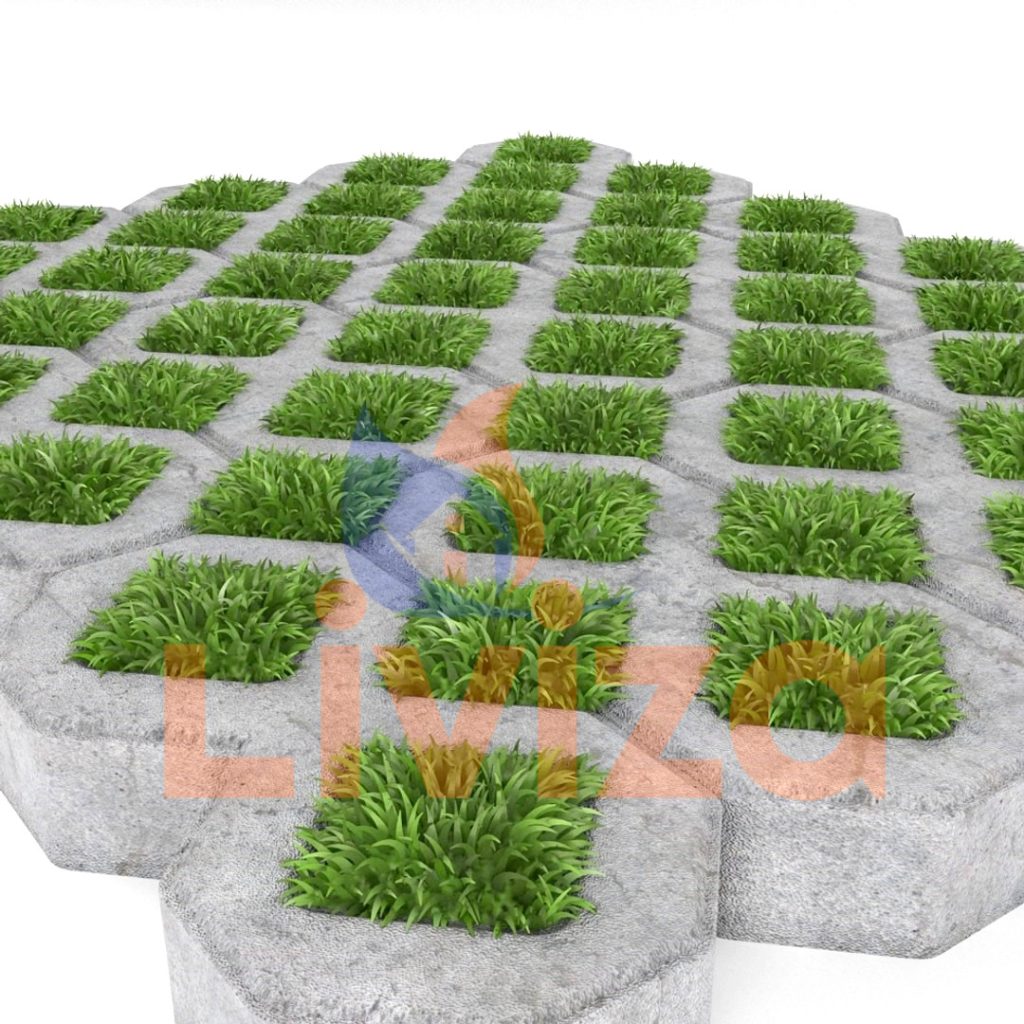

Storm water management
Grass pavers help reduce stormwater runoff by allowing water to infiltrate into the soil instead of flowing over paved surfaces. This can help prevent flooding and minimize stress on drainage systems.
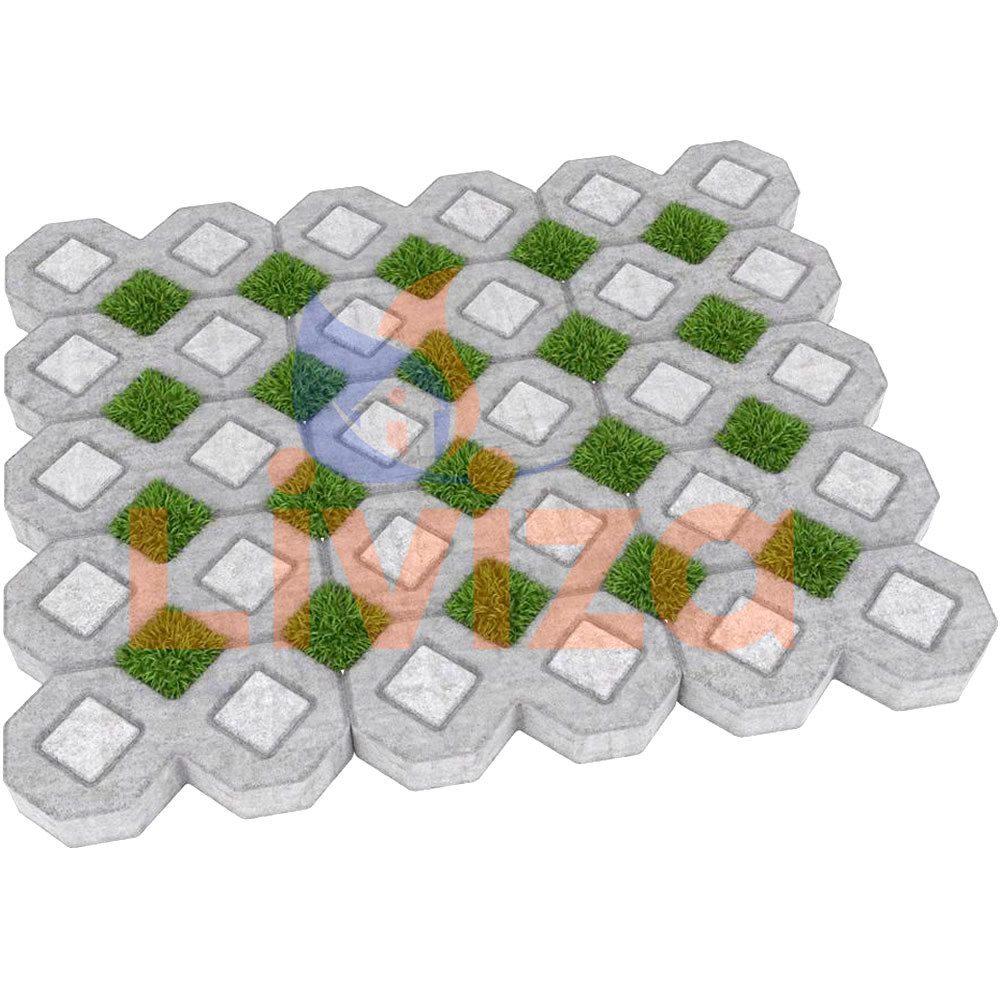

Erosion control
Landscape paving and the vegetation that grows in the paving cells stabilize the soil and prevent erosion, especially on slopes or in areas prone to runoff. They offer an environmentally friendly solution that combines the advantages of paved areas with the ecological benefits of green spaces.
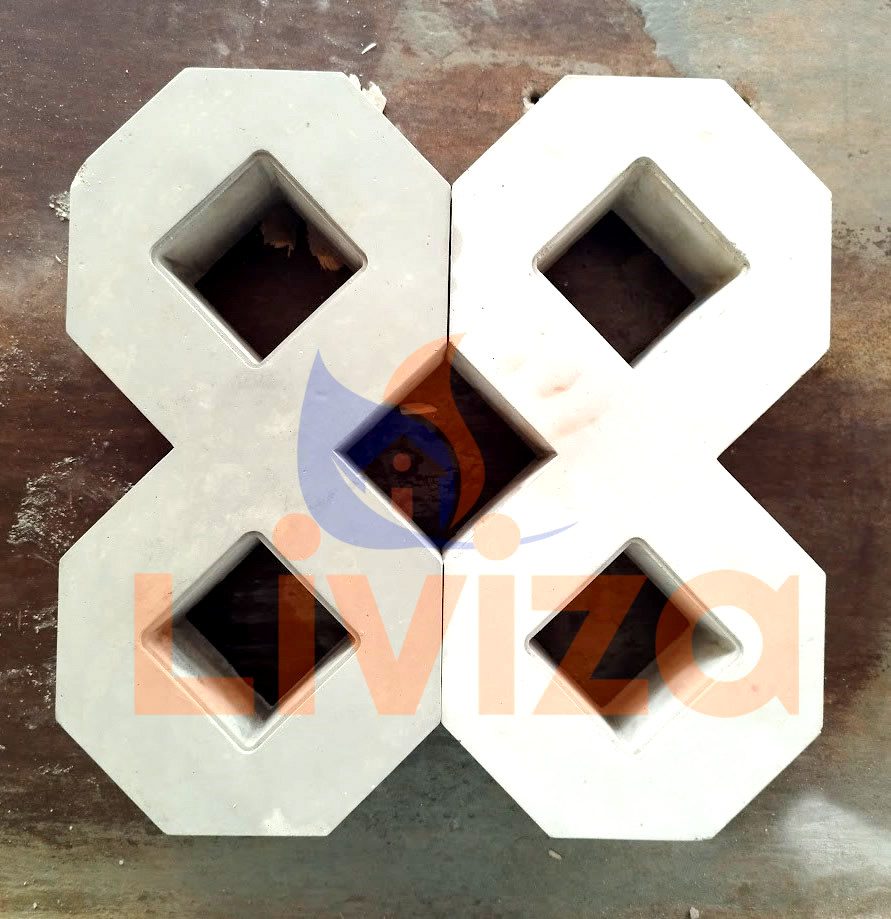

Reinforced Grass Paving
Grass Paver is an environmentally friendly, permeable paving stone that promotes greenery and good drainage. Grass pavers are designed to provide structural support for vehicles, pedestrians and equipment. They can withstand the weight and stress of typical traffic loads.
We use a 3-6mm thick reinforcement in the grass pavers to ensure the load bearing capacity of a well constructed walkway or driveway. Reinforced grass pavers are often used in driveways, parking lots and pathways in residential areas where a natural look and permeability are desired along with load bearing capacity.


The strength and quality of Grass Paver Block
We generally produce our grass pavers from M-30 grade concrete by compacting the grass pavers using a vibrating process until all voids are filled. The curing of grass pavers ensures the strength, durability and longevity of concrete structures.
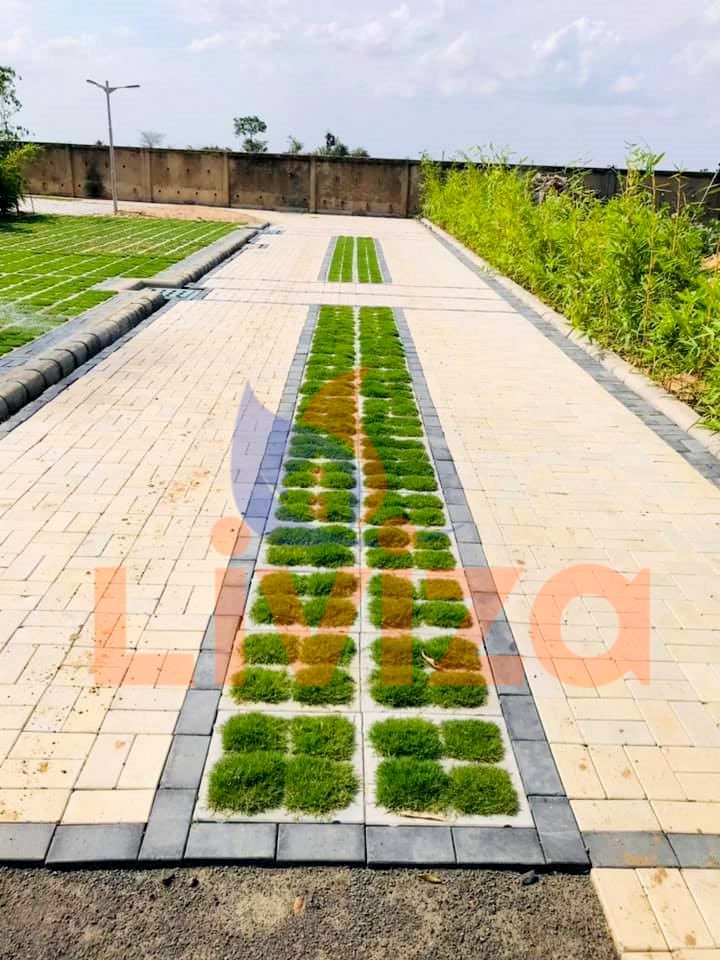

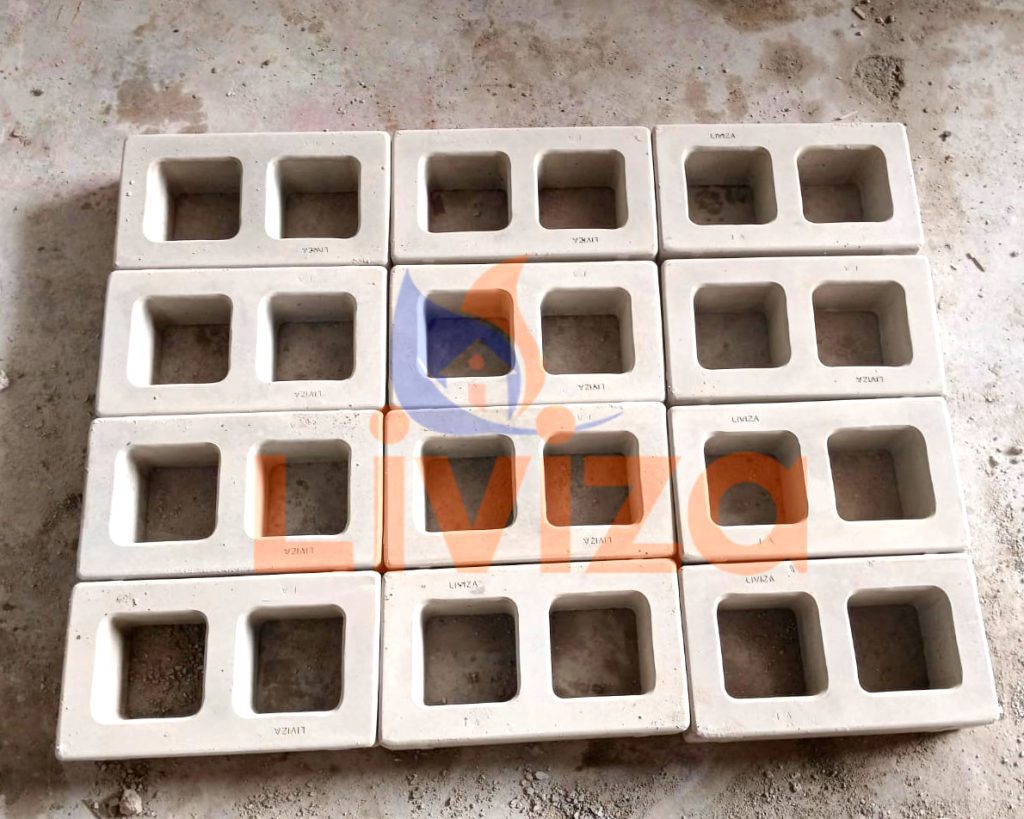

How do Grass Paver work ?
Driveways: Grass pavers are commonly used for residential driveways where a natural aesthetic is desired along with functional strength to support cars. Parking lots: They are also used in commercial parking areas to meet environmental regulations and provide a green solution. Fire lanes: Grass pavers can be used for fire lanes where vegetation needs to be maintained but load-bearing capacity is also required. Sports Fields and Golf Courses: They are used in sports fields, golf course pathways, and other recreational areas to provide a durable yet green surface that blends with the natural surroundings.
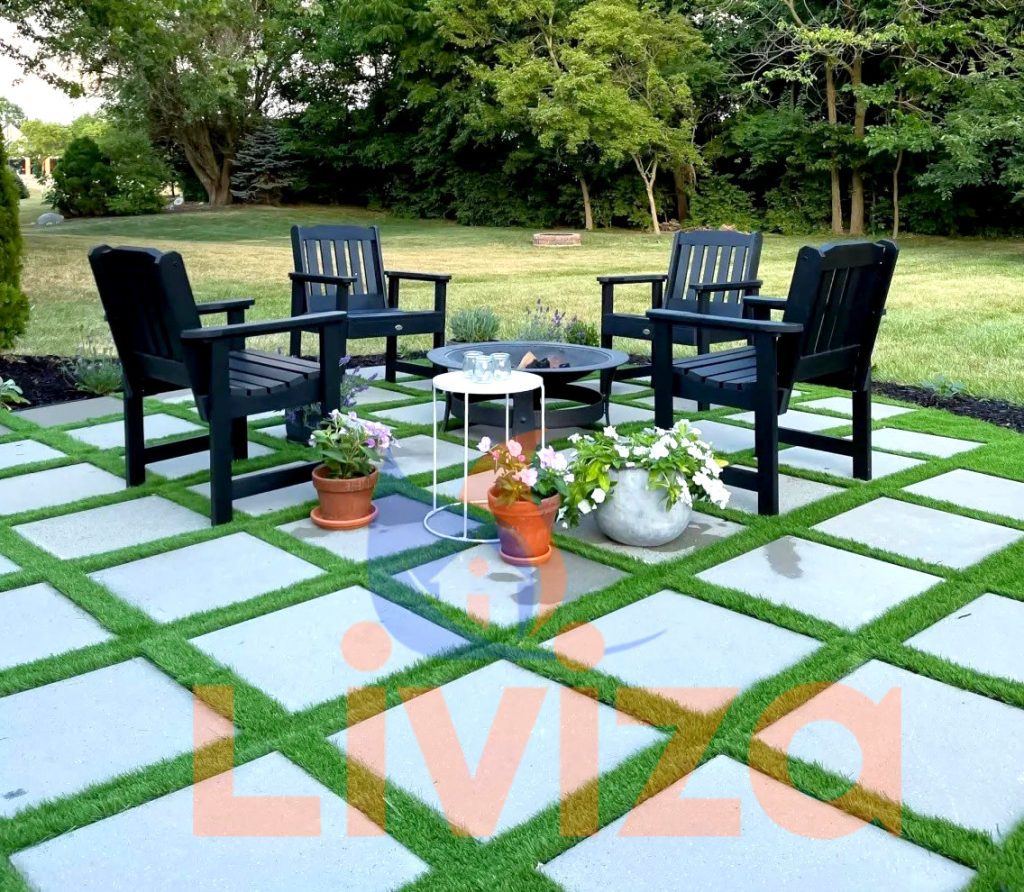

Advantages of using turfstone:
Permeability: Like traditional grass pavers, reinforced grass systems allow rainwater to infiltrate into the soil, reducing stormwater runoff and supporting groundwater recharge.
Aesthetics: They blend seamlessly with the landscape and provide a natural appearance, enhancing the visual appeal of outdoor spaces.
Environmental Benefits: Reinforced grass paving contributes to sustainability efforts by promoting vegetation growth, reducing heat island effects, and supporting biodiversity.
Durability: The reinforcement grids or panels enhance the load-bearing capacity of the grass surface, making it suitable for both light and heavy-duty applications.
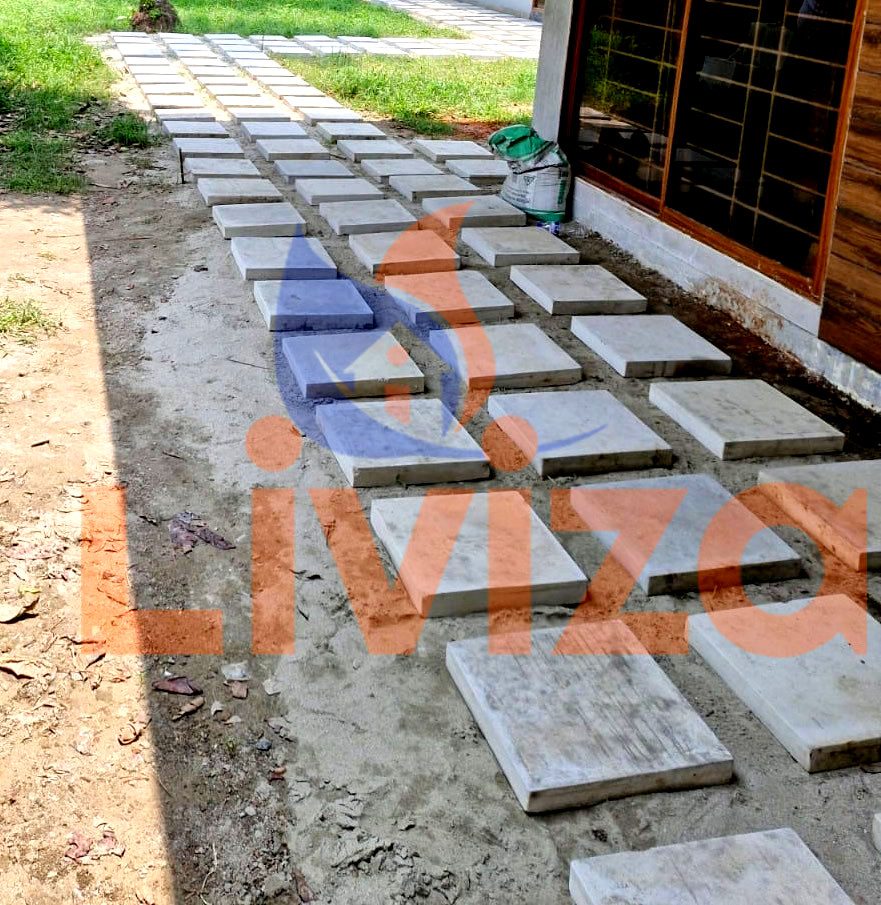

Turfstone paver applications
Grass pavers are commonly used in a variety of settings, including parking lots, driveways, fire lanes, pedestrian walkways, and recreational areas. Also grass paver used to meet environmental regulations and provide durable, attractive surfacing.
Grass Paver Installation
This is the most widely used type of grass-paving, and is claimed to be structurally sounder and stronger than other forms. Basically, specially-shaped, interlocking ‘cell’ pavers are laid on a prepared bedding layer over a sub-base, and the ‘cells’ filled with the chosen soil and seed. Preparation of the subgrade: similar to the installation of regular interlocking pavers, the area is excavated and levelled to create a stable subgrade. This may mean removing the existing soil, adding a layer of gravel or crushed stone and compacting it to create a solid foundation
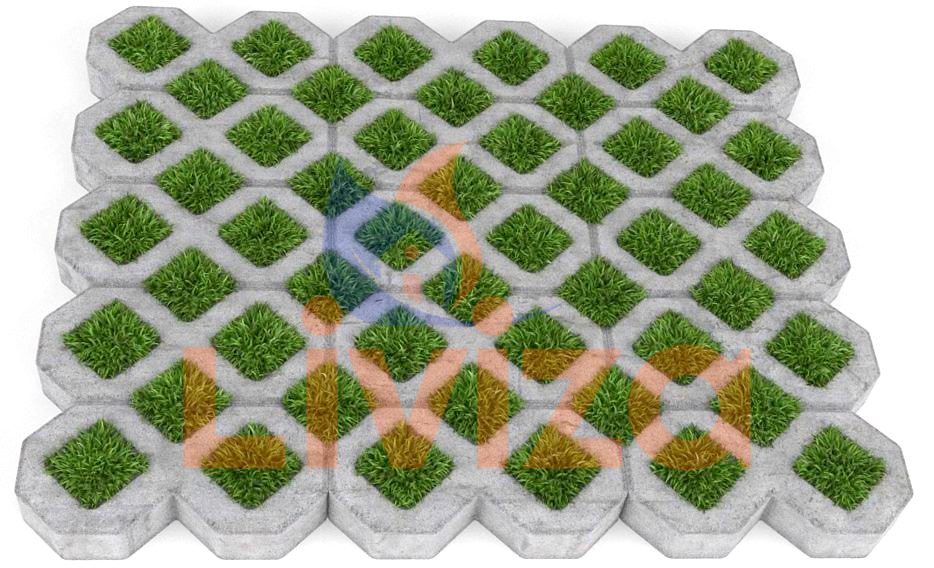

In conclusion, permeable concrete pavers are a sustainable paving option that offer both the advantages of conventional concrete strength and the capacity to effectively manage stormwater runoff. They are progressively famous in metropolitan and rural regions trying to improve both usefulness and ecological obligation in their outside spaces. Concrete grass pavers are an attractive alternative to conventional pavement because they have a natural, green appearance and blend well with the landscape. We tailor these products to meet the specific requirements of each customer.
Liviza House, House No. 60, Road No. 6,
Block No. B, Green Model Town,
Mugdha, Dhaka-1214
Factory ( MATUAIL, DEMRA DHAKA)
Some useful Sections
Subscribe Now
Don’t miss our future products! Get Subscribed Now!
©2024. Liviza Bangladesh. All Rights Reserved.
